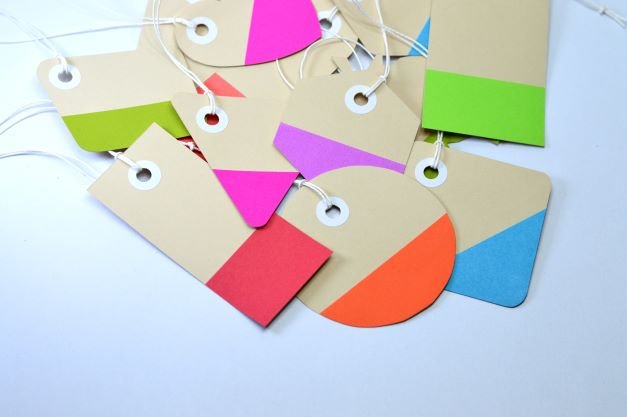In a mind-numbing computer marathon a few weeks ago of discovering ways to use my newly discovered Obsidian plug-in Dataview, I reviewed some old Notion blog posts from Red Gregory. Red has some great thoughts, and I found her advice critical when trying to learn Notion; however, the Notion operating system needed to be less database-centric for me to get a good handle around.
Obsidian's note-taking programming is linked-centric and similar to my old note-taking system, TheBrain. Because I have spent all my attempts at creating a Personal Knowledge Management (PKM) system using the linked-centric structure, I am familiar with the platform. Therefore, Dataview allowing my link-centric approach to behave like a database system is just a bonus.
Because I now have a new world of "Notion-like" pages I can create, I spent some time reviewing a few of my old favorite dashboards, videos, and articles. One Notion-based article I wanted to review first is Red Gregory's two-tag system. [^1]
A tagging system can be frustrating. Ask anyone who has adopted some form or another for a Zettelkasten or PKM. Tags used as an index allow users to create "entry points" into their note-taking system, and the same marker can "cluster" similar notes regarding a topic or focus. [^2] A third form, "related," [^3] is perhaps the most potent form of tagging and is the most difficult without technology.
Red Gregory's two-tag system [^4] covers the typical "tag as an index" and "tagging to gather clusters" of notes. Red's video expresses it as an "x, y, z" assessment. For example, "Is the note about x?" if not, "Can it be filed in drawer y?" and "is the note related to z ?" Red uses an example, i.e., when viewed as a file cabinet, the "drawer" (y) could be Productivity, and Time-Management is the "file" (x) within the drawer. All notations about Time-Management will reside within the file. However, many additional folders can live within the same Productivity drawer, i.e., "task discipline," "mental models," etc. [^5]
The z element or "relations" is what Red uses to "sort" her drawer. For example, if a note has five different relations and is filed with a single (y) "productivity" tag, the note with five relations will appear first. [^6]
The "relations" tagging I submit offers the highest probability of luck in a knowledge management system (PKM). However, defining luck as the "development of events by chance," serendipity occurs because areas are connected but "lead away" from the central theme. [^7] "Relations" tagging offers the highest potential reward and is simultaneously the most challenging to achieve through backlinks alone. Thankfully, developers "SkepticMystic and Emile" have originated the Obsidian plug-in "Graph Analysis," consisting of a "set of algorithms that computes useful relations between the notes in your vault." [^8]
Consider Red Gregory's example above. If "Productivity" is my main tag and "Time Management" is my secondary (focus) tag. What are all the potential relationship tags to "Time Management," which could offer insight? Not just to "where something is cited" but also "why, or with whom, or what it is cited!" [^8] "Time" and "Manage" have a high correlation, but what about "Method" or "Results?" If I move our relationship to "Time," can I gain additional insight by considering "Chaos" and "Complexity?" How about "Happiness" and "Activity?" I have notes scattered throughout my Zettelkasten where "Happiness," "Chaos," and "Complexity" all connect to Time Management in one way or another. And what, if anything, does Herbert A. Simon's quote about "A wealth of information creates a poverty of attention" [^10] have to do with time management? Possibly nothing in the context I am currently studying, perhaps everything. However, it is exciting to have a technology gather and rank my various co-citations and give "extra weight when two notes are cited close together." [^11]
Written January 16, 2023
Footnotes:
https://www.redgregory.com/notion/2020/9/14/how-i-organize-my-notes-and-automate-tags-in-notion?rq=Tags
https://forum.zettelkasten.de/discussion/comment/15091/#Comment_15091
Ibid (redgregory.com)
Ibid
Ibid
Ibid
Thomas, E. (2020, August 23). Understanding Zettelkasten - What it means to communicate with the slip-box. Retrieved September 11, 2020, from https://medium.com/@ethomasv/understanding-zettelkasten-d0ca5bb1f80e
https://github.com/SkepticMystic/graph-analysis
Ibid
https://www.goodreads.com/quotes/8502027-in-an-information-rich-world-the-wealth-of-information-means-a#:~:text=Quote%20by%20Herbert%20A.%20Simon%3A%20%E2%80%9CIn%20an%20information-rich,obvious%3A%20it%20consumes%20the%20attention%20of%20its%20recipients.
Ibid (skepticmystic @ github.com)

